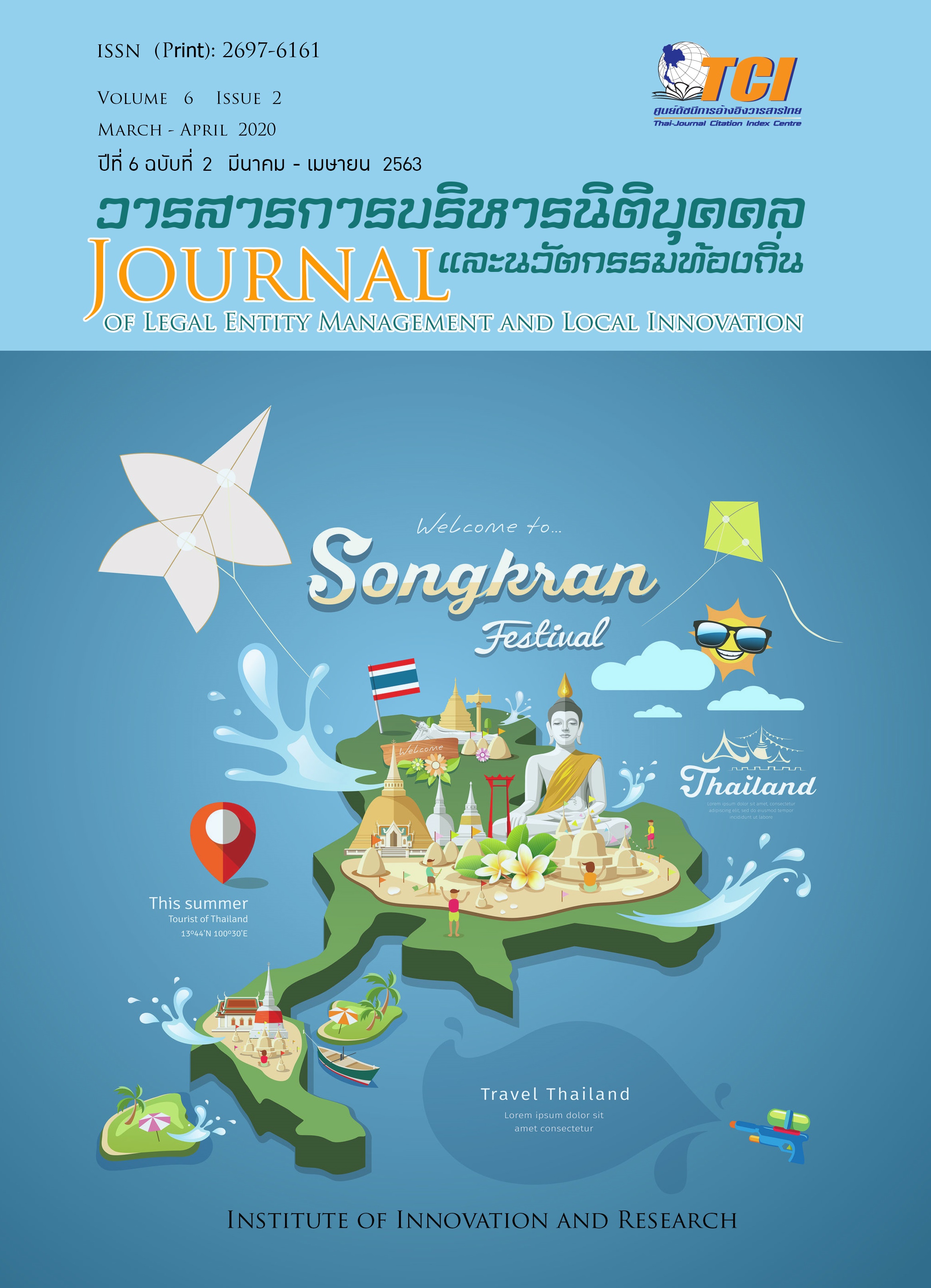Waste Bank Fund for Life and Community Welfare A Case Study of Bakhae Village as the Winner of Zero Waste Award in Waeng Yai Sub-district Municipality, Waeng Yai District, Khon Kaen Province
Keywords:
Fund of Waste Bank for Life, Zero Waste Award, Community WelfareAbstract
The objectives of this research were 1) to study the lessons learned about the fund management status of Waste Bank for Life in Bakhae village as the first winner of Zero Waste Award in Waeng Yai Sub-district Municipality, Waeng Yai District, Khon Kaen Province, and 2) to study the problems and obstacles in managing fund of Waste Bank for Life and givng community welfare in Waeng Yai Sub-district Municipality, Waeng Yai District, Khon Kaen Province. This was a qualitative research designed by collecting data from related documents, non-participation observation and in-depth Interview from key informants consisted of a community leader, 4 committee and 10 members from Fund of Waste Bank for Life, totaling of 15 persons. Information was collected and analyzed using content analysis and summarized to body of knowledge study with lessons learned from the observation. The researcher found that: Most of the members in Fund of Waste Bank for Life were females aged between 51-60 years old, agricultural career (rice farmers), graduated from upper secondary schools and earned monthly income of 5,001 - 10,000 baht. The results of studying management of Waste Bank Fund for Life in Bakhae village as the first winner of Zero Waste Award in Waeng Yai Sub-district Municipality, Waeng Yai District, Khon Kaen Province indicated were as follows: First, the support from Waeng Yai Sub-district Municipality to become a waste-free community. The municipality has organized a training on waste separation, providing knowledge about the method of making fermented fertilizer for agricultural purpose by separating general waste, wet waste, recyclable waste and dangerous waste. An offer of plastic tanks for proper disposing scrap food among local villagers, promoting local villagers to make fermented fertilizer and bio-fermented liquid for agricultural and household purposes, promoting local villagers to use food carrier instead of plastic bag under the “Aum Boon” food carrier project, setting up responsible staff to input the information of waste sellers, and field trip support to study from the first winner of the nation. The second aspect was the participation and volunteering in waste management of the community. Household waste was separated before selling to the Waste Bank Fund for Life. Community participated in setting up rules and regulations and appointed committee. The cooperation of village health volunteers (VHVs), and local village volunteers to assist in waste separation in order to facilitate waste trading to waste buyers. The third aspect was the application of 3R principles (1. Reduce – Reduce use or carefully think before use, 2. Reuse – Repeated uses, and 3. Recycle – Converted waste into reusable materials) to manage solid waste in the community. The reducing on plastic bags and replaced by cloth bags or baskets for shopping in the market. Reusing plastic bags and those contaminated plastic bags were cleaned and dried for selling to oil extraction plants. In addition, used plastic bags were utilized for the community benefits of earning income, for example, coffee sachets were woven to be bags, used fabric softener or detergent pouches were sewed into tablecloths, and so on. The fourth aspect was the community welfare. Funeral fund was provided as part of welfares from Fund of Waste Bank for Life in Bakhae village. The source of fund was come from selling of waste by members to the fund committee, village health volunteers (VHVs), or fund volunteers once a month to earn monthly income. Besides, the annual lucky draw was organized for the fund members before the end of each calendar year. Lastly, in aspect of problems and obstacles in managing Fund of Waste Bank for Life and giving community welfare in Waeng Yai Sub-district Municipality, Waeng Yai District, Khon Kaen Province, it was found that the quantity of household waste was decreased resulting in reducing amount of recyclable waste for sales and changing of new community leader who was lack of experience in waste management, these were problems led to discontinuous in the waste management operation.


